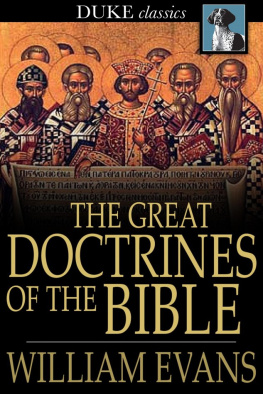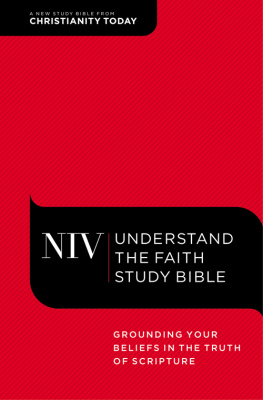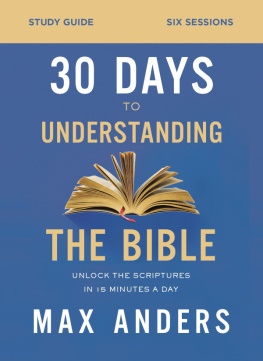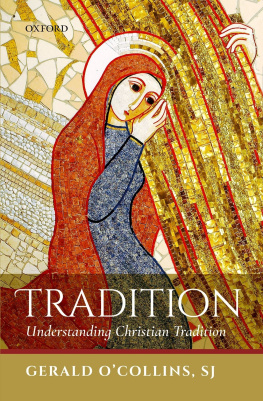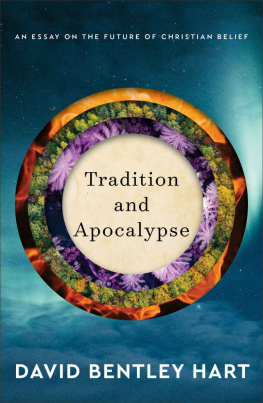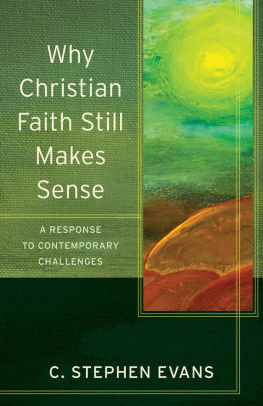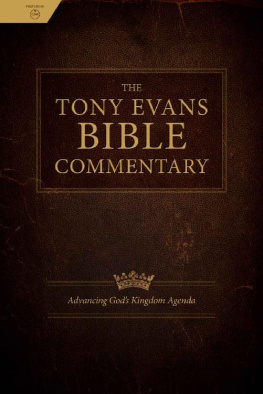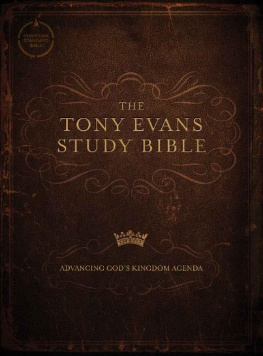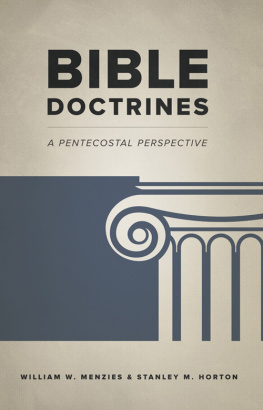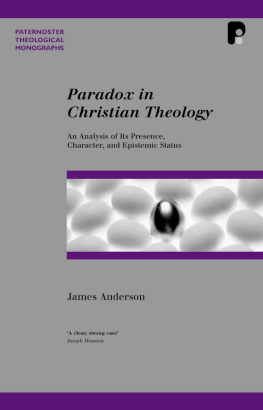THE GREAT DOCTRINES OF THE BIBLE
* * *
WILLIAM EVANS
*
The Great Doctrines of the Bible
From a 1912 edition
ISBN 978-1-62011-430-8
Duke Classics
2012 Duke Classics and its licensors. All rights reserved.
While every effort has been used to ensure the accuracy and reliability of the information contained in this edition, Duke Classics does not assume liability or responsibility for any errors or omissions in this book. Duke Classics does not accept responsibility for loss suffered as a result of reliance upon the accuracy or currency of information contained in this book.
Contents
*
Foreword
*
The demand for this book has come from the students in the classroom who have listened to these lectures on the Great Doctrinesof the Bible, and have desired and requested that they be put intopermanent form for the purpose of further study and reference. Thisvolume is prepared, therefore, primarily, but not exclusively, forthe student, and with his needs in mind.
The doctrines herein treated are dealt with from the standpoint ofBiblical rather than Dogmatic theology. This is evident from theplan which is followed in the work, namely, to gather together allthe Scripture passages dealing with the subject under consideration,and from them choose a required number that may be called representative;then seek to understand the meaning of these references by the studyof the text itself as well as its context and parallel passages;and finally, from the selected proof-texts, formulate the doctrinalteaching, and place such results under appropriate headings.
The doctrines of God, Jesus Christ, and the Holy Spirit are morefully dealt with than the doctrines which follow. This is especiallytrue of the doctrine of God. The reason for this is to set forththe method pursued in these studies, and to give a pattern for thestudy of the doctrines to follow.
It is intended that the doctrines of this book should be studiedside by side with the open Bible. It is for this reason that manyof the Scripture references are indicated by chapter and verseonly. There must be constant reference to the Scriptures themselves.
This volume is in such form as to be of great service in theinstruction given in Bible classes. There is probably no greaterneed in the Christian church today than that its membership shouldbe made acquainted with the fundamental facts and doctrines ofthe Christian faith. The Christian layman, therefore, who desiresa deeper knowledge of the doctrines of the Christian faith may findall the help he needs in this book. It is hoped that while it isprepared for the student, it is nevertheless not too deep for theaverage layman.
The special indebtedness of the writer is hereby expressed to thefollowing works: "What the Bible Teaches," by R. A. Torrey, D. D.To this work the writer owes much with regard to the method andplan of this book. "Systematic Theology," by A. H. Strong, D. D.,has provided some rich expositions of the sacred text. "ChristianDoctrine," by Dr. F. L. Patton, has been found very helpful,especially in connection with the subject of the "Proofs for theExistence of God." Further recognition of indebtedness is alsodue to the following: "The Problem of the Old Testament," and "TheChristian View of God and the World," by Dr. James Orr; "Studiesin Christian Doctrine," by George Knapp; "Jesus and the Gospel,"and "The Death of Christ," by Prof. James Denny; "The Person andWork of Jesus," by Nathan E. Wood, D. D.
There are doubtless others to whom credit is due of whom the authoris not at this time conscious, for, after all, we are "part of allthat we have seen, and met, and read." To those unknown authors,therefore, our indebtedness is hereby acknowledged.
Chicago. WILLIAM EVANS.
The Doctrine of God
*
I. HIS EXISTENCE.
1. TAKEN FOR GRANTED BY THE SCRIPTURE WRITERS:
It does not seem to have occurred to any of the writers of eitherthe Old or the New Testaments to attempt to prove or to argue forthe existence of God. Everywhere and at all times it is a facttaken for granted. "A God capable of proof would be no God at all"(Jacobi). He is the self-existent One (Exod. 3:14) and the Sourceof all life (John 5:26).
The sublime opening of the Scriptures announces the fact of God andHis existence: "In the beginning God" (Gen. 1:1). Nor is the riseor dawn of the idea of God in the mind of man depicted. Psa. 14:1:"The fool hath said in his heart. There is no God," indicates nota disbelief in the existence, but rather in the active interestof God in the affairs of menHe seemed to hide Himself from theaffairs of men (See Job 22:12-14).
The Scriptures further recognize that men not only know of theexistence of God, but have also a certain circle of ideas as towho and what He is (Rom. 1:18-19).
No one but a "fool" will deny the fact of God. "What! no God? Awatch, and no key for it? A watch with a main-spring broken, andno jeweler to fix it? A watch, and no repair shop? A time-card anda train, and nobody to run it? A star lit, and nobody to pour oilin to keep the wick burning? A garden, and no gardener? Flowers,and no florist? Conditions, and no conditioner?" He that sittethin the heavens shall laugh at such absurd atheism.
2. THE ARGUMENTS FOR THE EXISTENCE OF GOD.
These arguments may not prove conclusively that God is, but theydo show that in order to the existence of any knowledge, thought,reason, conscience in man, we must assume that God is (Strong).It is said of the beautiful, "It may be shown, but not proved." Sowe say of the existence of God. These arguments are probable, notdemonstrative. For this reason they supplement each other, andconstitute a series of evidences which is cumulative in its nature.Though taken singly, none of them can be considered absolutelydecisive, they together furnish a corroboration of our primitiveconviction of God's existence, which is of great practical value,and is in itself sufficient to bind the moral actions of men. Abundle of rods may not be broken even though each one separatelymay; the strength of the bundle is the strength of the whole. If inpractical affairs we were to hesitate to act until we have absoluteand demonstrable certainty, we should never begin to move at all.
Instead of doubting everything that can be doubted, let us ratherdoubt nothing until we are compelled to doubt.
Dr. Orr, of Glasgow, says: What we mean by the proof of God'sexistence is simply that there are necessary acts of thought bywhich we rise from the finite to the infinite, from the caused tothe uncaused, from the contingent to the necessary, from the reasoninvolved in the structure of the universe to a universal and eternalreason, which is the ground of all, from morality in conscienceto a moral Lawgiver and Judge. In this connection the theoreticalproofs constitute an inseparable unity'constitute together,'as Dr. Stirling declares, "but the undulations of a single wave,which wave is but a natural rise and ascent to God, on the part ofman's own thought, with man's own experience and consciousness asthe object before him."
Religion was not produced by proofs of God's existence, and will notbe destroyed by its insufficiency to some minds. Religion existedbefore argument; in fact, it is the preciousness of religion thatleads to the seeking for all possible confirmations of the realityof God.
a) Universality of Belief in the Existence of God.
(1) The fact stated and proven:
Man everywhere believes in the existence of a supreme Being orBeings to whom he is morally responsible and to whom propitiationneeds to be made.

